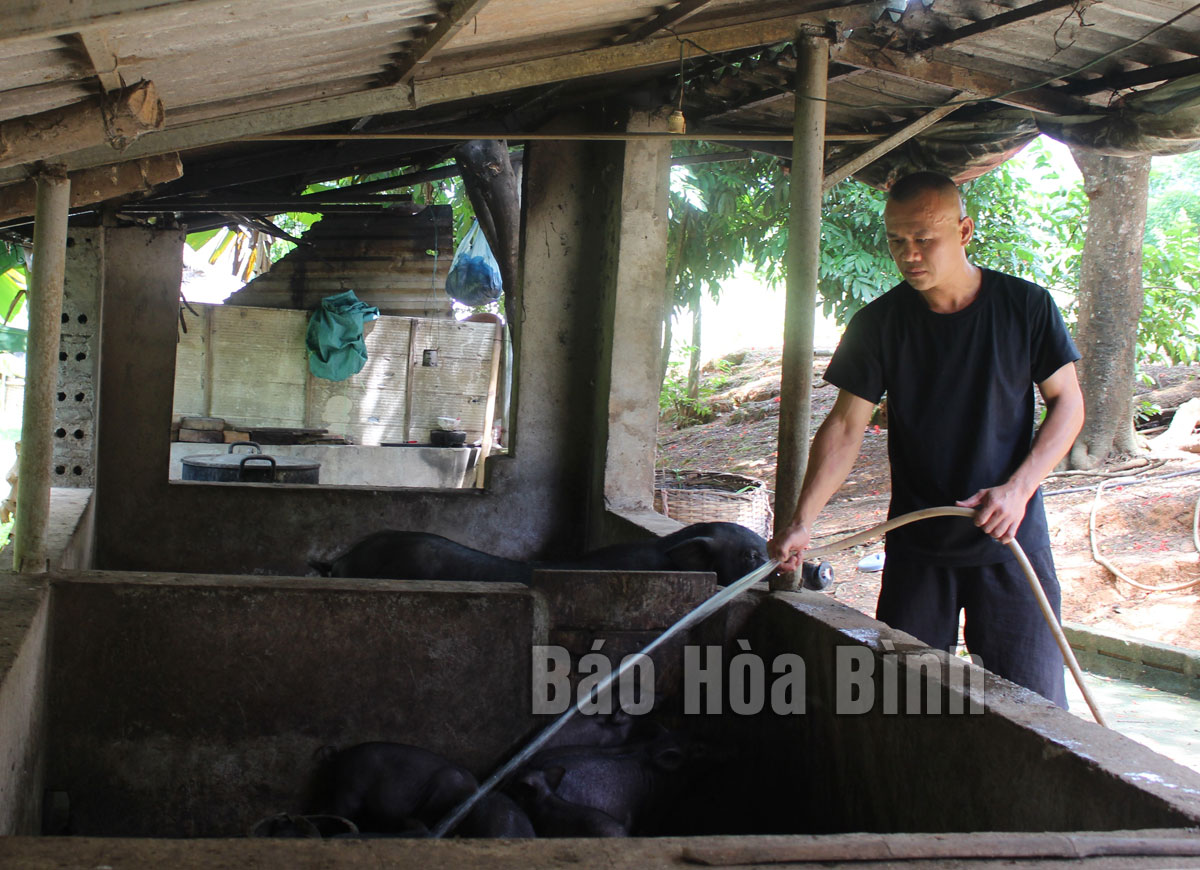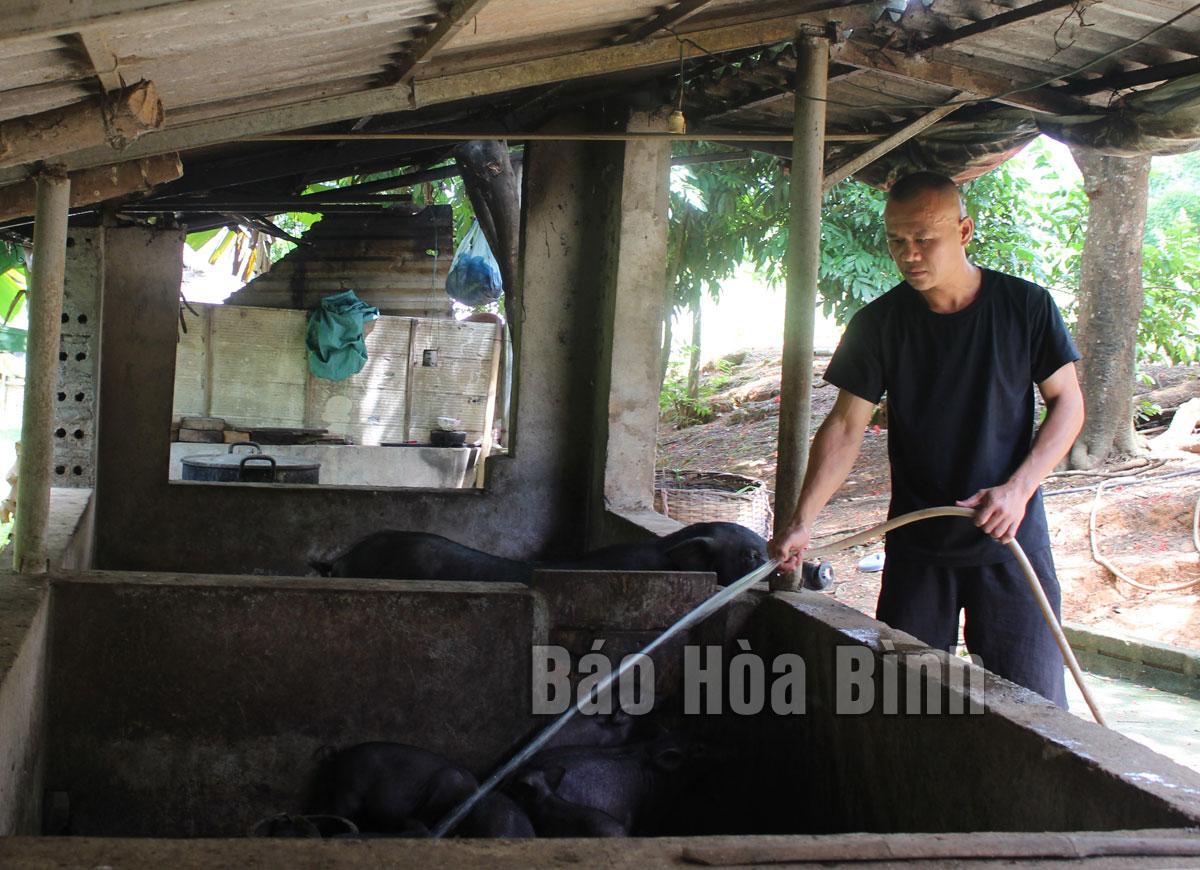
(HBO) – As part of the efforts to implement the new-style rural area building, over the years, Bao La commune in Mai Chau district has focused on supporting agricultural production and farming structure transformation, and encouraged local farmers to develop production connection in value chains and build the trademark of local farm produce.
Bao La commune (Lai Chau) is home to 101
households breeding Muong Pa black pigs.
Ha Cong Hau, Vice Chairman of the communal People’s Committee, said that the
commune has switched rice cultivation areas with low efficiency to farming ones
of other plants with higher effectiveness. At the same time, the locality has
organised training courses to equip farmers with advanced farming science and
technologies, while setting up linkages among farmers in production.
The commune has developed concentrated material production areas for some
typical products such as black pigs, vegetable and bitter cucumber.
Ha The Nhien, Director and Chairman of the Muong Pa black-skin pig breeding
cooperative, said that from seven members in 2018 when it was set up in 2018,
to date the cooperative has had 17 members and partnered with 147 farmer
households in different communes. In the first six months of this year, the
cooperative earned about 2 billion VND (85,932 USD), with income of each member
reaching about 30 million VND each month and that of partner households
amounting 15 million VND per month.
Changes in mindset of local farmers have contributed to building many farm
produce trademarks for Bao La. The agricultural sector has affirmed its central
role in helping farmers improve their living conditions. Last year, per capita
income of local residents reached 36 million VND, with the rate of poor
households reducing to 7.65 percent./.
According to data from the Hoa Binh Provincial Party Committee, the industrial production index for the first six months of 2025 is estimated to have increased by 20% compared to the same period last year. This marks the highest year-on-year growth rate for this period since 2020.
In the first six months of 2025, Hoa Binh province’s export turnover was estimated at 1.145 billion USD, marking an 18.11% increase compared to the same period in 2024. Import turnover was estimated at $ 804 million, a 17.15% increase, which helped the province maintain a positive trade balance.
The lives of the ethnic minority farmers in Tan Lac district have gradually improved thanks to the new directions in agricultural production. This is a testament to the collective strength fostered through the professional associations and groups implemented by various levels of the district’s Farmers’ Union.
With the motto the "product quality comes first,” after nearly one year of establishment and operation, Muong village’s Clean Food Agricultural and Commercial Cooperative, located in Cau Hamlet, Hung Son Commune (Kim Boi district), has launched reputable, high-quality agricultural products to the market that are well-received by consumers. The products such as Muong village’s pork sausage, salt-cured chicken, and salt-cured pork hocks have gradually carved out a place in the market and they are on the path to obtaining the OCOP certification.
In the past, the phrase "bumper harvest, rock-bottom prices" was a familiar refrain for Vietnamese farmers engaged in fragmented, small-scale agriculture. But today, a new spirit is emerging across rural areas of Hoa Binh province - one of collaboration, organisation, and collective economic models that provide a stable foundation for production.
Maintaining growing area codes and packing facility codes in accordance with regulations is a mandatory requirement for agricultural products to be eligible for export. Recently, the Department of Agriculture and Environment of Hoa Binh province has intensified technical supervision of designated farming areas and packing facilities to safeguard the "green passport" that enables its products to access international markets.



